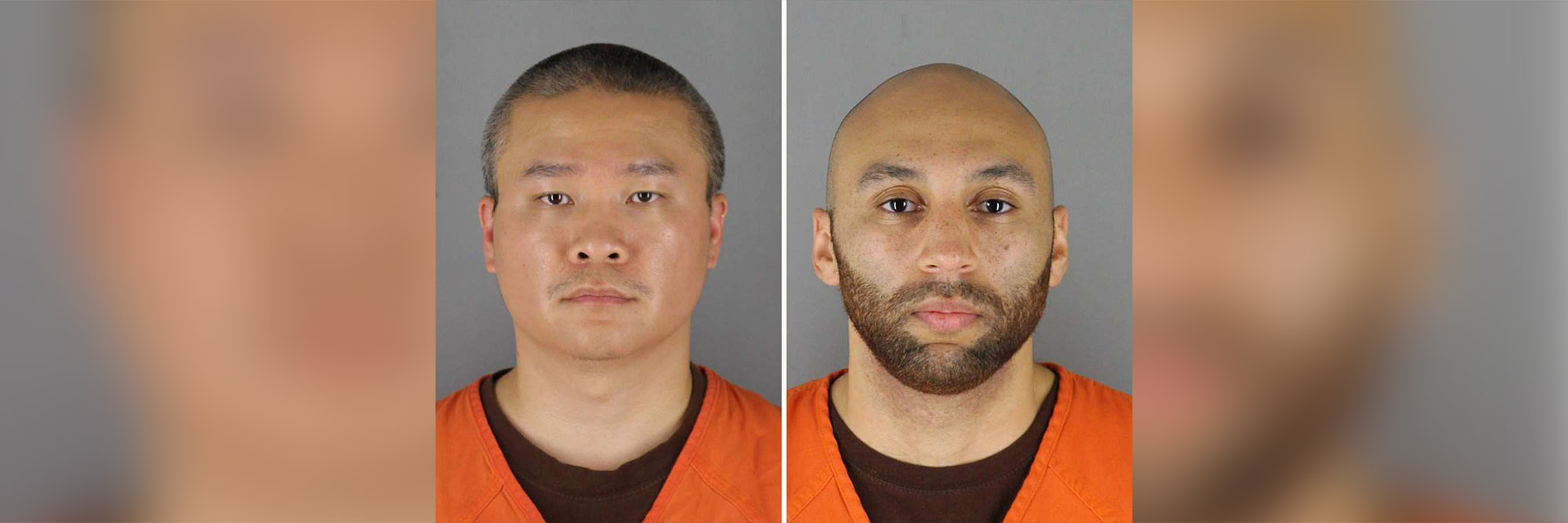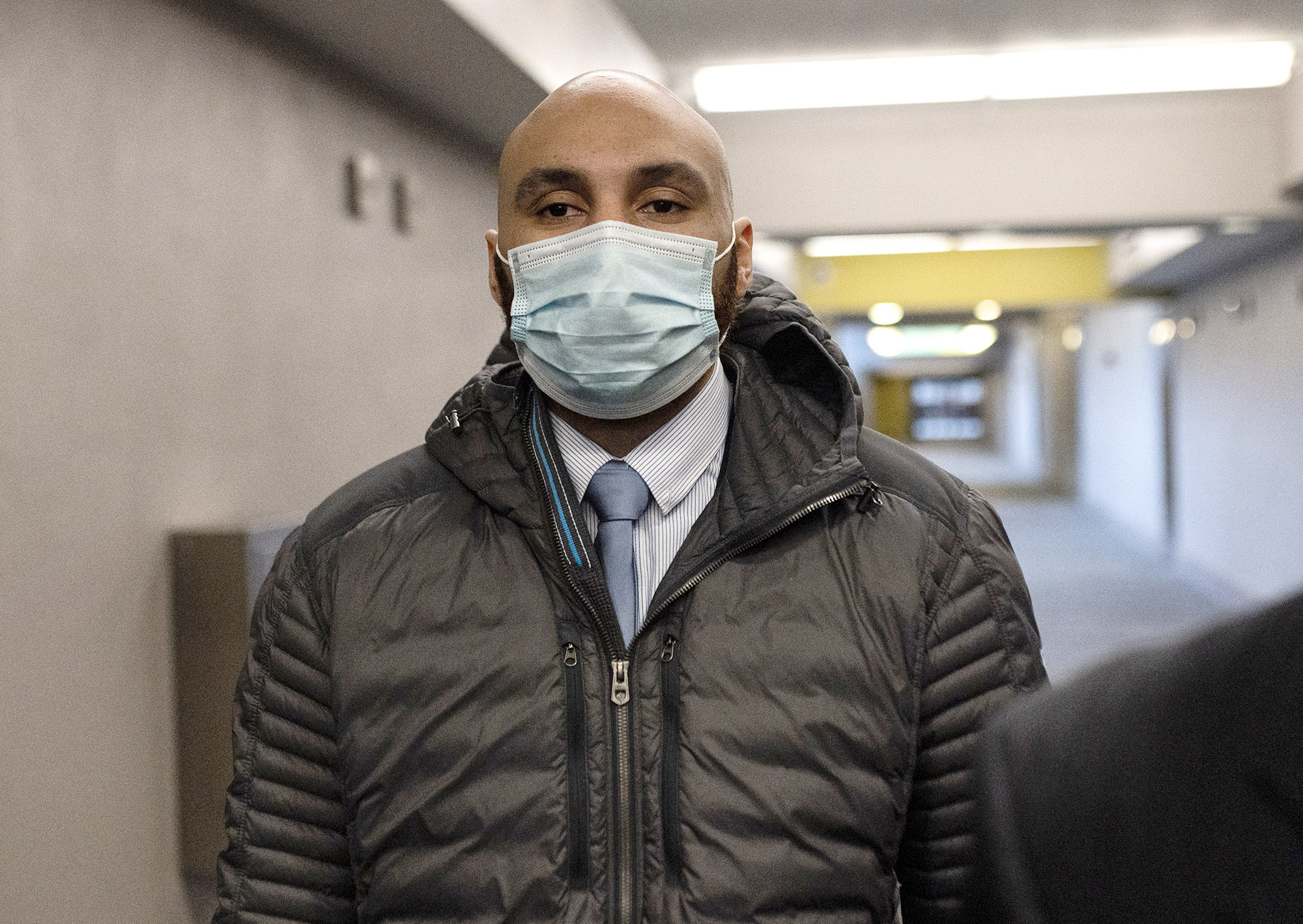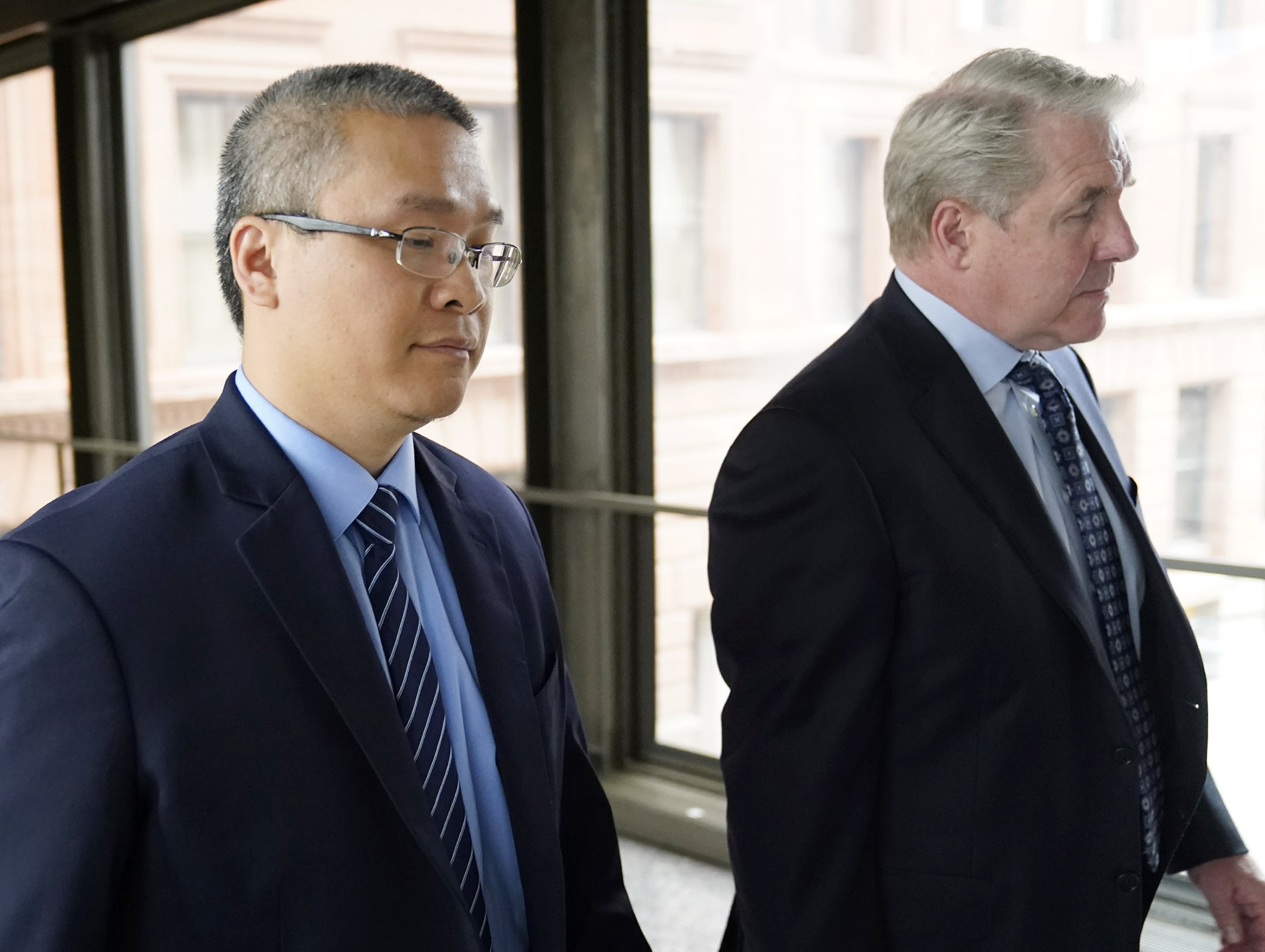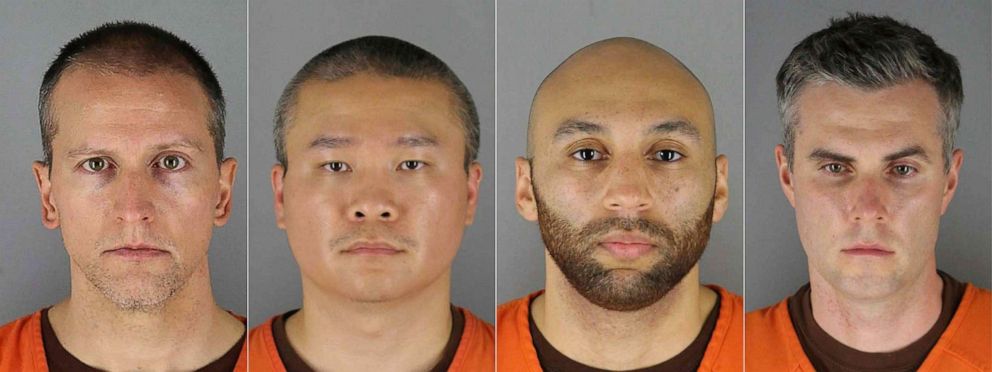Former police officer J. Alexander Kueng pleads guilty in George Floyd death case
One of two former police officers scheduled to go on trial Monday on charges stemming from the death of George Floyd pleaded guilty as part of an agreement with prosecutors, a court official told ABC News.
J. Alexander Kueng, 29, pleaded guilty Monday morning to one count of aiding and abetting in manslaughter after prosecutors and Kueng's defense attorney agreed to recommend a sentence of 42 months in prison, a spokesperson for the Hennepin County Courts said.
A second charge of aiding and abetting in second-degree unintentional murder will be dismissed against Kueng as part of his plea agreement.
Judge Peter Cahill asked Kueng if he understood the plea agreement and informed him he has the right to a trial. Kueng told Cahill that he understood the agreement and that no one had threatened him to accept it.
A sentencing date for Kueng was not immediately set. Cahill ordered a pre-sentencing investigation.
The plea was announced just as a joint state trial for Kueng and Tou Thao, 34, was to begin with jury selection. The trial comes after the two former Minneapolis police officers reported to separate prisons this month to begin their federal sentences after being convicted in February on federal charges of violating Floyd's civil rights.
Both men had pleaded not guilty to charges of aiding and abetting in second-degree unintentional murder and aiding and abetting in manslaughter stemming from the Memorial Day 2020 death of Floyd, which ignited massive protests across the nation and world.

Thao is proceeding with the trial, but does not want a jury to render a verdict, the court spokesperson said. Thao, instead, wants Cahill to decide his fate based on evidence stipulated to by his attorney and the prosecution team, the spokesperson said.
Minnesota Attorney General Keith Ellison said Cahill will only decide a verdict for Thao on the charge of aiding and abetting second-degree manslaughter. He said in a statement that prosecutors in his office have decided to "hold back" on the more serious charge of aiding and abetting second-degree murder until Cahill reaches a decision in what will now be a bench trial.
Ellison said the state has agreed to dismiss the charge of aiding and abetting in second-degree murder if Thao is convicted on the manslaughter charge.
Cahill ordered the agreed-upon evidence for him to review be submitted to the court by Nov. 17. After receiving the evidence, the judge will take up to 90 days to review it and render a verdict, the spokesperson said.
The state trial for Kueng and Thao was initially scheduled for June 2022, but Cahill delayed it over concerns it would be difficult to seat an impartial jury given the pretrial publicity. Earlier this year, Thao, Kueng and a third defendant, former Minneapolis police officer Thomas Lane, were convicted on federal civil rights charges stemming from Floyd's death and Lane later pleaded guilty to state charges.
At the time of his decision, Cahill said postponing the trial should "diminish the impact of this publicity on the defendants' right and ability to receive a fair trial from an impartial and unbiased jury."

Lane, 39, pleaded guilty in May to state charges of aiding and abetting second-degree manslaughter. In exchange for the plea, state prosecutors agreed to dismiss the top charge against him of aiding and abetting second-degree unintentional murder -- similar to the plea accepted Monday by Kueng. Lane was sentenced in September to three years in prison, which he is serving concurrently with his federal sentence of 2 1/2 years.
"J. Alexander Kueng is now the second officer involved in Floyd’s death to accept responsibility through a guilty plea. That acknowledgement hopefully can bring comfort to Floyd’s family and bring our communities closer to a new era of accountability and justice," Ellison said in a statement.
Kueng, Thao and Lane were convicted in February by a federal jury on charges of violating George Floyd's civil rights by failing to intervene or provide medical aid as their senior officer, Derek Chauvin, kneeled on the back of Floyd's neck, while he was handcuffed, for more than nine minutes.
Kueng, a rookie cop at the time of Floyd's death, was sentenced to three years in federal prison, followed by two years of supervised release. Thao, who had been a nine-year veteran of the Minneapolis Police Department at the time of Floyd's death, was sentenced to 3 1/2 years in prison, also followed by two years of supervised release.

Floyd suffered critical injuries when he was placed in handcuffs and in a prone position on the pavement after being accused of attempting to use a fake $20 bill at a convenience store to buy cigarettes. Videos from security, police body cameras and civilian cell phone cameras showed Floyd begging for his life and complaining he could not breathe as Chauvin held his knee on the back of his neck, rendering him unconscious and without a pulse, according to prosecutors. Floyd was taken to a hospital and pronounced dead.
Chauvin was convicted in state court last year of second-degree unintentional murder, third-degree murder and second-degree manslaughter. He was sentenced to more than 22 years in prison.
While Chauvin's state trial was livestreamed gavel-to-gavel due to concerns over the COVID-19 pandemic limiting the public's access to the courtroom, cameras are not being allowed at the trial for Kueng and Thao. Cahill ruled in April that conditions “are materially different from those the Court confronted from November 2020 through April 2021 with the Chauvin trial."

The 46-year-old Chauvin also pleaded guilty in December to federal charges of violating Floyd's civil rights and was sentenced in July to 21 years in federal prison.
During their federal trial, Lane, Kueng and Thao each took the witness stand and attempted to shift the blame to Chauvin, who was a 19-year veteran of the Minneapolis Police Department. Lane told the jury that Chauvin "deflected" all his suggestions to help Floyd, while Kueng testified that Chauvin "was my senior officer and I trusted his advice" and Thao attested that he "would trust a 19-year veteran to figure it out."





